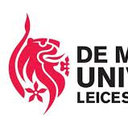Body Mass Index and Risk of Gallbladder Cancer: Systematic Review and Meta-Analysis of Observational Studies.
Mots clés
Abstrait
OBJECTIVE
To provide a quantitative assessment of the association between excess body weight, interpreted as increased body mass index (BMI), and the risk of gallbladder cancer (GBC).
METHODS
We identified eligible studies in Medline and EMBASE up to 1 February 2015, and reference lists of retrieved articles. Summary relative risks with their 95% confidence intervals were calculated in a random-effects model. Subgroup analyses were performed according to study design, gender, geographic location, ascertainment of exposure and adjustment for confounders.
UNASSIGNED
A total of 12 cohort studies and 8 case-control studies were included in the meta-analysis. Overall, compared with "normal" weight, the summary relative risks of GBC were 1.14 (95% CI, 1.04-1.25) for overweight individuals (BMI 25-30 kg/m²) and 1.56 (95% CI, 1.41-1.73) for obese individuals (BMI > 30 kg/m²). Obese women had a higher risk of GBC than men did (women: SRRs 1.67, 95% CI 1.38-2.02; men: SRRs 1.42, 95% CI 1.21-1.66), and there was significant association between overweight and GBC risk in women (SRRs 1.26, 95% CI 1.13-1.40), but not in men (SRRs 1.06, 95% CI 0.94-1.20).
CONCLUSIONS
Findings from this meta-analysis indicate that obesity is associated with an increased risk of GBC, especially in women. Overweight is associated with GBC risk only in women.



